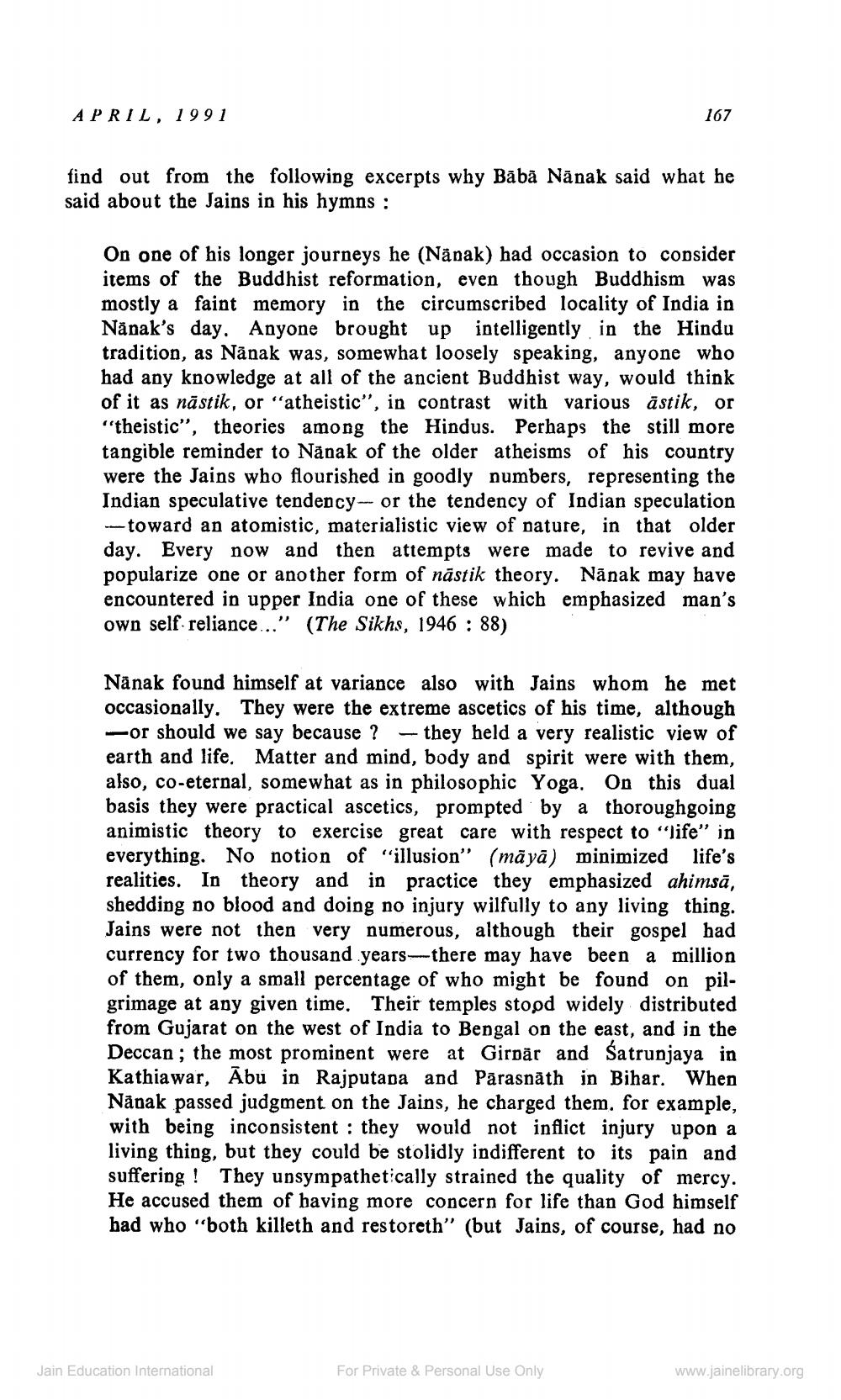________________
APRIL, 1991
find out from the following excerpts why Bābā Nānak said what he said about the Jains in his hymns:
167
On one of his longer journeys he (Nanak) had occasion to consider items of the Buddhist reformation, even though Buddhism was mostly a faint memory in the circumscribed locality of India in Nanak's day. Anyone brought up intelligently in the Hindu tradition, as Nanak was, somewhat loosely speaking, anyone who had any knowledge at all of the ancient Buddhist way, would think of it as nästik, or "atheistic", in contrast with various āstik, or "theistic", theories among the Hindus. Perhaps the still more tangible reminder to Nanak of the older atheisms of his country were the Jains who flourished in goodly numbers, representing the Indian speculative tendency- or the tendency of Indian speculation -toward an atomistic, materialistic view of nature, in that older day. Every now and then attempts were made to revive and popularize one or another form of nastik theory. Nanak may have encountered in upper India one of these which emphasized man's own self reliance..." (The Sikhs, 1946: 88)
Nanak found himself at variance also with Jains whom he met occasionally. They were the extreme ascetics of his time, although -or should we say because ? they held a very realistic view of earth and life. Matter and mind, body and spirit were with them, also, co-eternal, somewhat as in philosophic Yoga. On this dual basis they were practical ascetics, prompted by a thoroughgoing animistic theory to exercise great care with respect to "life" in everything. No notion of "illusion" (māyā) minimized life's realities. In theory and in practice they emphasized ahimsā, shedding no blood and doing no injury wilfully to any living thing. Jains were not then very numerous, although their gospel had currency for two thousand years-there may have been a million of them, only a small percentage of who might be found on pilgrimage at any given time. Their temples stood widely distributed from Gujarat on the west of India to Bengal on the east, and in the Deccan; the most prominent were at Girnar and Śatrunjaya in Kathiawar, Abu in Rajputana and Parasnath in Bihar. When Nanak passed judgment on the Jains, he charged them. for example, with being inconsistent: they would not inflict injury upon a living thing, but they could be stolidly indifferent to its pain and suffering! They unsympathetically strained the quality of mercy. He accused them of having more concern for life than God himself had who "both killeth and restoreth" (but Jains, of course, had no
Jain Education International
For Private & Personal Use Only
www.jainelibrary.org




